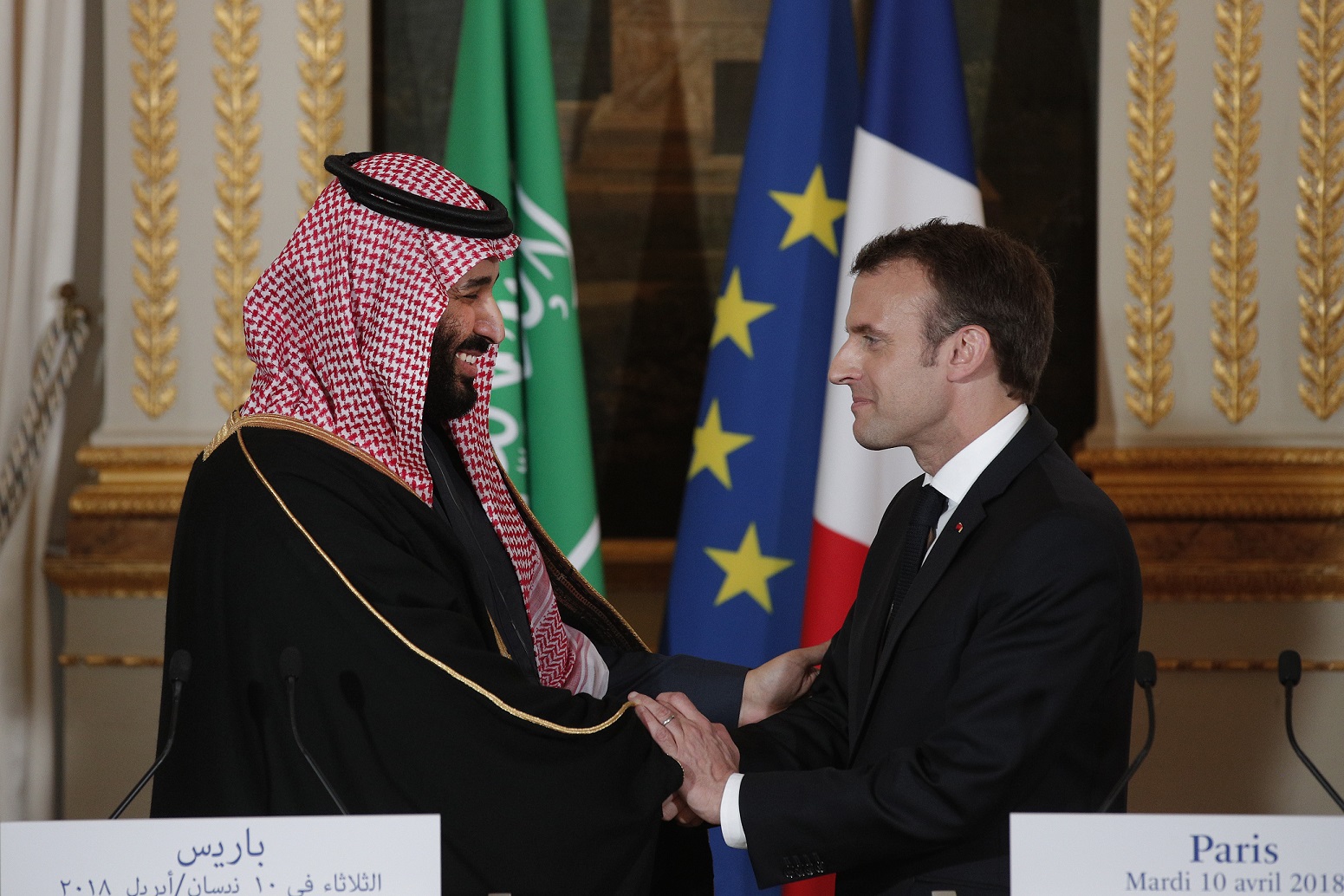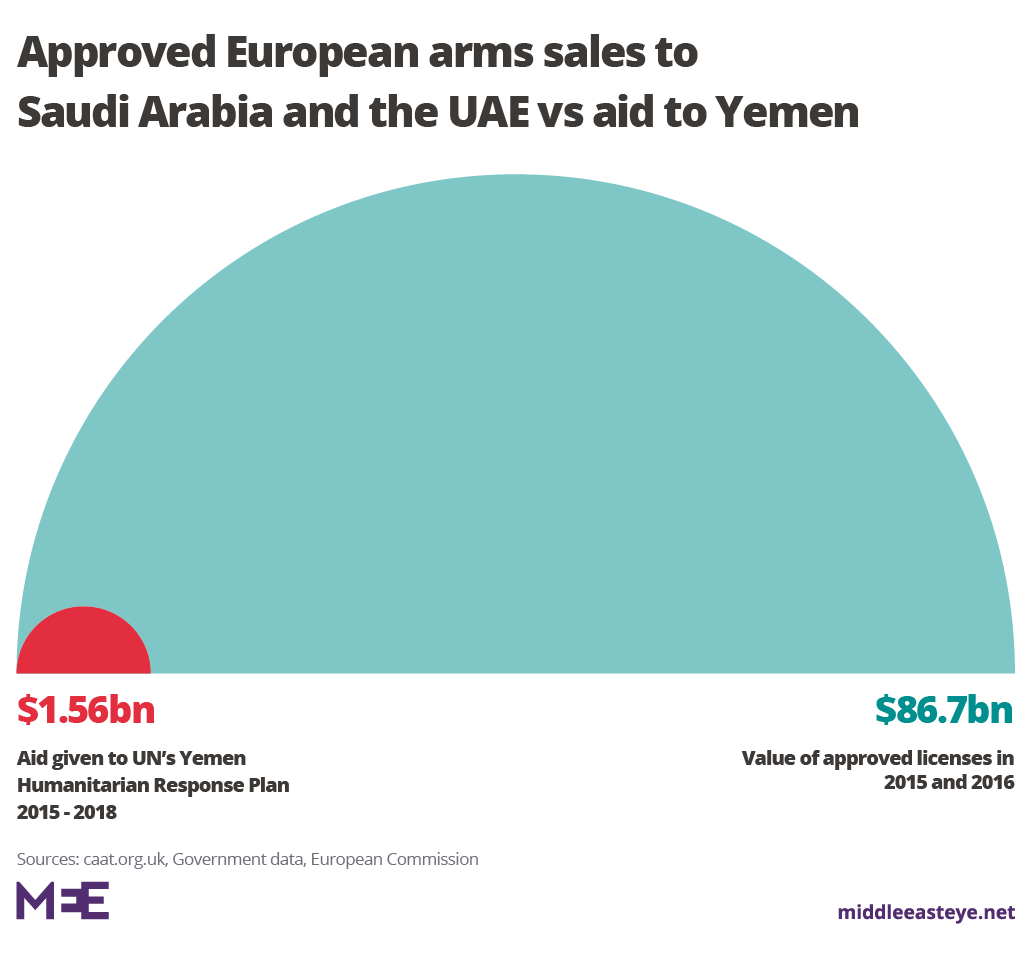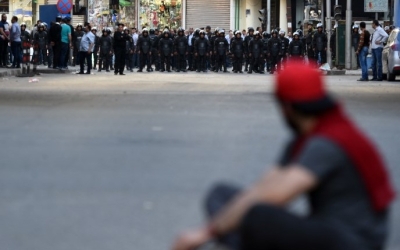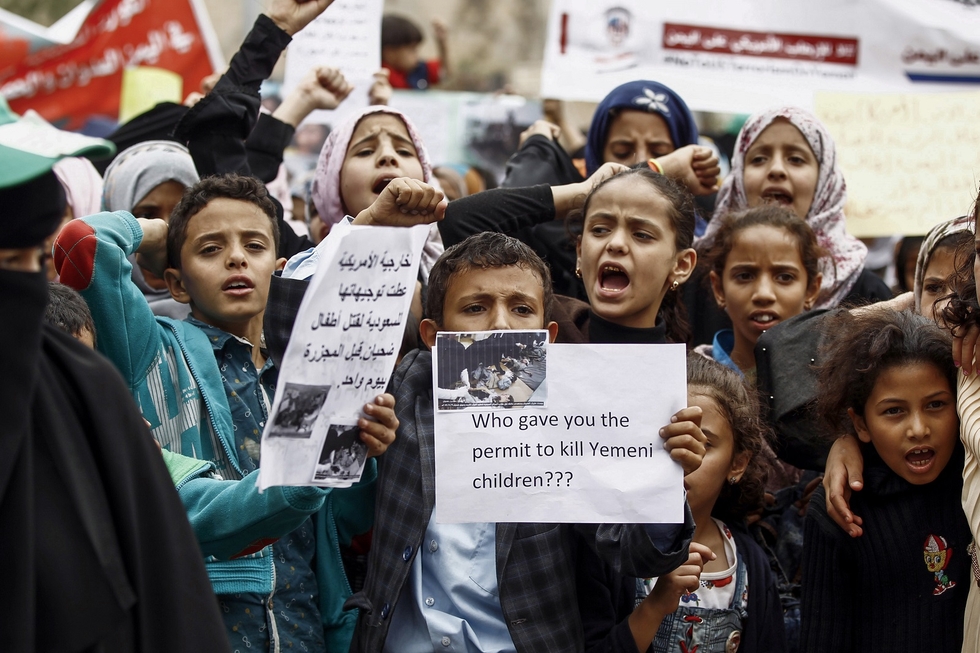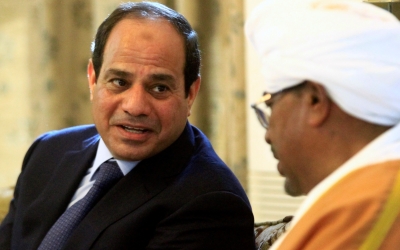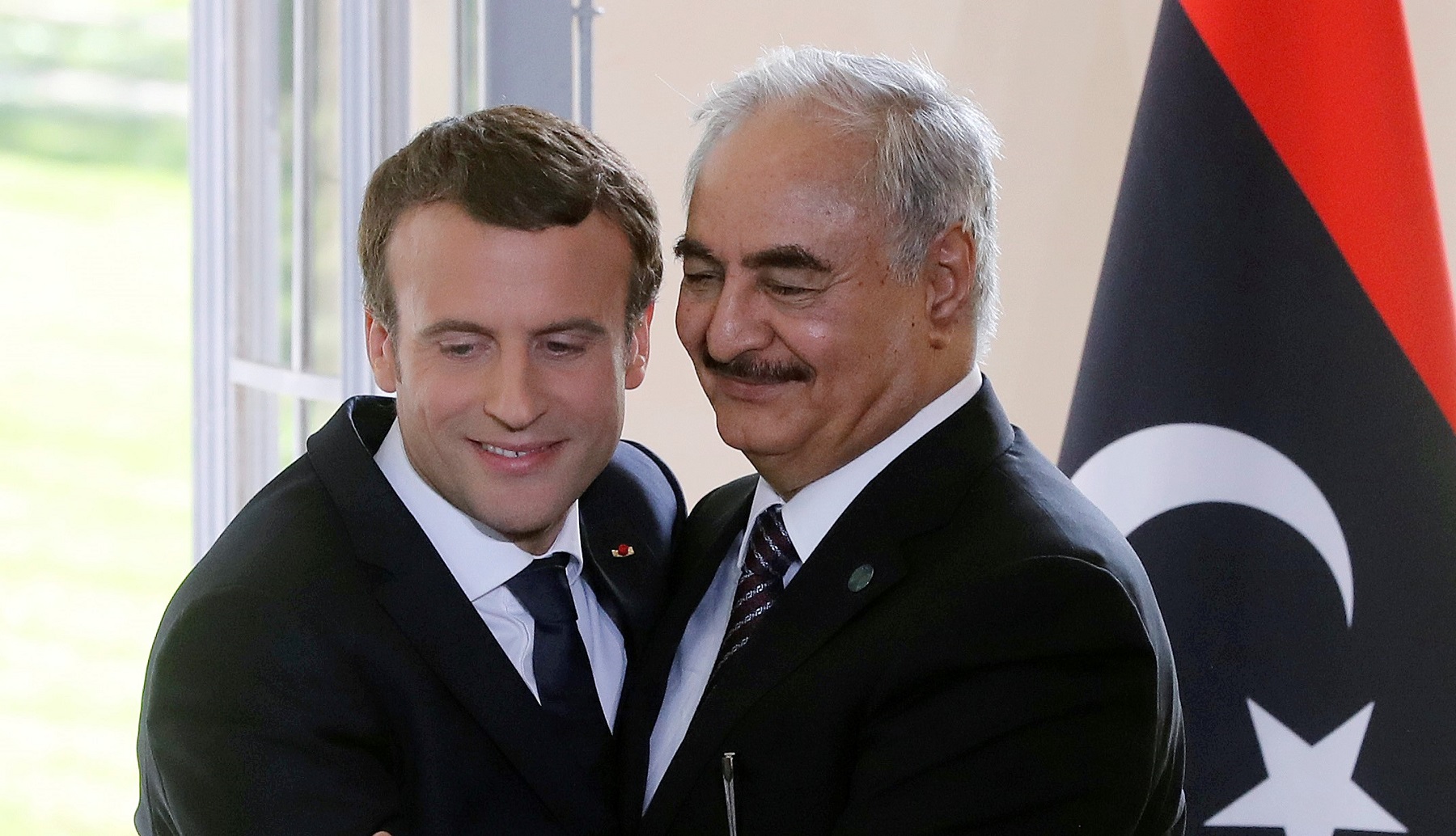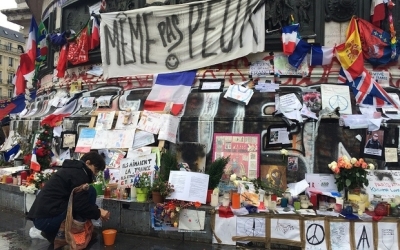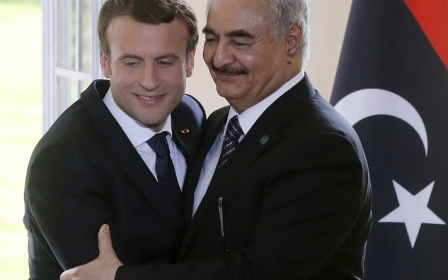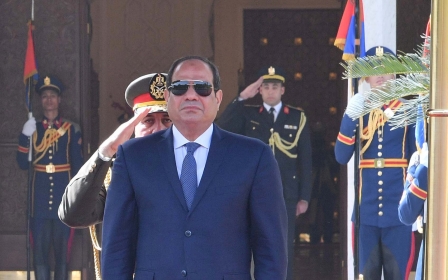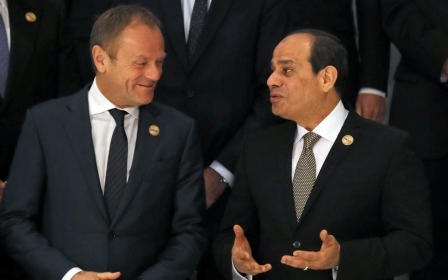The Middle East according to France's Emmanuel Macron
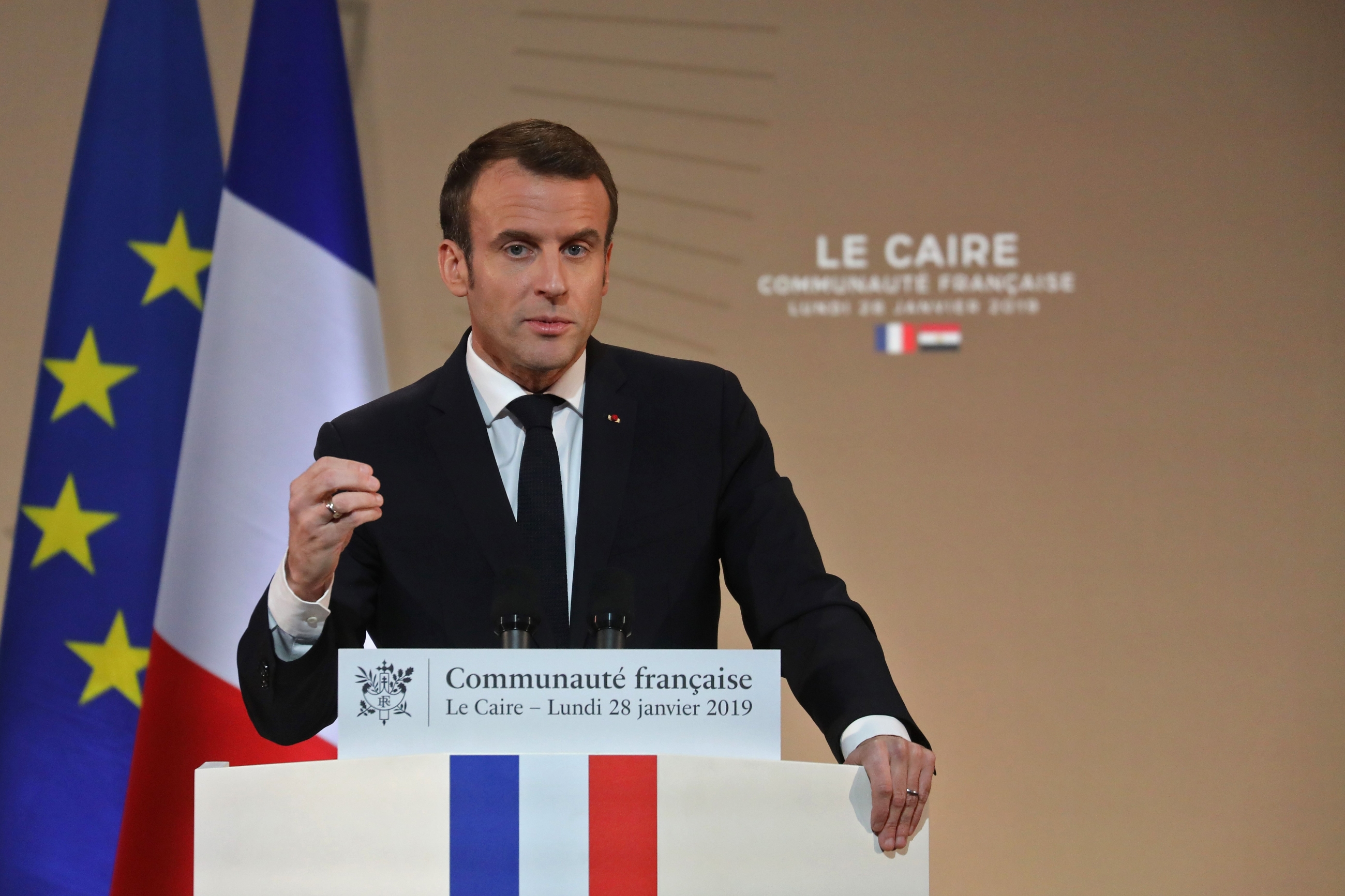
On Tuesday, Tunisian sources told Middle East Eye that 13 armed men with French diplomatic passports had been detained last week while crossing the Libyan border.
According to Tunisian authorities, the men were providing logistical support to the forces of Libyan general Khalifa Haftar, a turn of events that exposed, once again, French President Emmanuel Macron's foolish backing of the Libyan National Army (LNA) chief.
For the past decade or so, France's disastrous Libya policy has moved from the pulverising of a state, to regime change, to causing the assassination of the country's leader, to creating a power vacuum and then trying to solve the ensuing chaos, which it played a key part in creating.
As part of this, France backs a warlord, only to see him pull off another military coup that is bound to create yet more chaos. It's hard to imagine a more vicious cycle.
France under Macron
New MEE newsletter: Jerusalem Dispatch
Sign up to get the latest insights and analysis on Israel-Palestine, alongside Turkey Unpacked and other MEE newsletters
To be fair, there is much about Macron’s foreign policy - at least in relation to Europe - that is positive and commendable, starting with the sincerity of his determined and vigorous defence of the European Union, multilateralism, and international cooperation.
One could also cite his efforts to build Europe’s strategic autonomy while avoiding a militarisation of international relations, and his diplomatic attempts to keep, integrate or reintegrate Donald Trump and Vladimir Putin within international institutions to avoid escalating conflicts.
Also worth noting is his pragmatic willingness to talk to everybody - including those like Putin and Trump - who sought to personally undermine him and his cherished EU, and his readiness to mediate between enemies (Israel, Iran, Saudi Arabia, the US, and so on) to ease tensions.
On all those foreign policies and more, it would be hard to criticise Macron, especially since he sometimes finds himself isolated in his efforts.
Failures and setbacks
Despite his impressive display of diplomatic energy, the fact remains that most of Macron’s foreign policies and efforts have at this point failed miserably.
Macron’s foreign policy has so far been characterised by an impressively long list of failures and setbacks
From Brexit to the victories of “populist nationalist” forces in Italy and Austria, from the demise of the Iranian nuclear deal and his weak and ineffective calls on Riyadh to lift the murderous blockade of Yemen, to the almost complete eviction of France as a power capable of influencing the Middle East players on key issues and crises, Macron’s foreign policy has so far been characterised by an impressively long list of failures and setbacks.
Again, this sustained powerlessness may not be due to Macron himself, or to the fact that more powerful and ruthless players like Trump, Mohammed bin Salman and Putin see him as a lightweight, but to factors well beyond his or any other president’s control.
Those factors include the crisis of multilateralism, best exemplified and aggravated by Trump; the bitter fact that France has become at best a second, even third-tier power; and the rise of China, which is now the main trading partner of no fewer than 10 MENA countries.
Add to this the assertiveness of Saudi Arabia's crown prince in the Middle East, the proliferation across the region of troubled states, civil wars, and all possible forms of violence, including horrific levels of state and non-state terrorism.
In other words, the context could not be more hostile to Macron’s foreign policy ambitions.
A bankrupt Middle East policy
But it is on the Middle East that Macron’s policies have failed most keenly.
Although his electoral victory raised hopes for a fresh approach to the region, Macron has not delivered the break from the past he promised. He has instead fallen into the worst kind of atavistic "realpolitik".
The approach taken by the self-styled Jupiter sees "pragmatism" and "realism" deployed as code words for continuing or renewed support of despotic fascists, thugs, tyrants, mass murderers and state terrorists of various stripes.
Macron's 'pragmatism' and 'realism' are code words for continuing or renewed support of despotic fascists, thugs, tyrants and mass murderers
An unsustainable and profoundly blind policy that the usual spin masters from French and EU think tanks nicely frame as the "reassurance" doctrine.
This, according to a policy brief, means "providing its partners with reassuring responses to what it perceived as their anxiety in the face of domestic instability, changes in the regional balance of power, and international uncertainties. Cooperation on security, especially against the backdrop of severe terror attacks on French soil, proved a key ingredient cementing the relationship still further."
In plain language, this is the same abject and bankrupt "Arab strongman" policy that has always for the most part characterised French and more generally Western policies in the Middle East. It's just that this time, it's worse.
The Arab 'strongman' policy
What is amazing in the case of this professed champion of Enlightenment values is how fast, in the case of North Africa and the Middle East, he threw those values out of the window.
The military regime in Egypt and the journalist-slaying kingdom of Saudi Arabia perfectly illustrate how, when it comes to the so-called "Arab world", the most fundamental of human rights matter little to Macron and his fellow Western leaders.
Egypt and Saudi Arabia are perfect illustrations of how the most fundamental of human rights matter little to Macron
Thus, when Macron invited Egypt’s dictator Abdel Fattah el-Sisi to the Elysee Palace and gave him the red carpet treatment, he did not bother talking about human rights and civil liberties, instead adopting the Trump line by bluntly declaring it was not his business to "lecture Egypt on human rights".
If our heads of state usually talk the talk but never walk the walk on values they hypocritically claim to uphold, Macron set a new low standard by not even talking the talk, cynically citing “national sovereignty” as an alibi for what Human Rights Watch called France’s “indulgence” of Sisi.
But as is typical of morally bankrupt governments, where money talks, Macron, his Foreign Minister Jean-Yves le Drian and his Finance Minister Bruno le Maire certainly did not forget to discuss sales of more Rafale aircrafts.
Let's not forget that in Sisi, we are talking about a leader who gives Syria's Bashar al-Assad and Saudi Arabia's Mohammed bin Salman a run for their money when it comes to repressive dictatorship.
The Egyptian president is the man who killed the Arab Spring in his July 2013 military coup, deposited at gun point the first democratically elected president of Egypt and ordered the massacre of nearly 1,000 defenceless supporters of the Muslim Brotherhood in a single day.
He then moved on to immediately jail - with quasi systematic torture - his opponents, real or imagined, from Islamists to liberal secularists, an estimated 60,000 of them without counting the 1,250 whom he “disappeared” (turning Egypt into an Arab version of Chile under Pinochet) before replacing the emerging Egyptian democracy with the most violent, repressive, totalitarian dictatorship in the country's modern history.
All this with Western powers looking the other way. Yet none of that, and certainly not Sisi’s continuing repressive violence, made a difference to Macron during his own three-day visit to Egypt last January.
This time he did talk a little human rights, but only to reaffirm the “reassurance” doctrine, declaring in the joint press conference that the "security and prosperity of Egypt is of utmost importance", before paying lip service to “individual rights and the rule of law".
Everyone, including Sisi himself, understood perfectly that only the first part of that equation really matters, while the second part will predictably make no difference to what amounts to unconditional French support.
Sponsoring state terrorism
Regarding Saudi Arabia, the same old rhetoric and dual diplomacy of the cash register and “order-and-stability-first” prevails, justified by “the fight against terrorism”, now the main alibi used by all dictators across the globe and their Western accomplices to quell domestic dissent.
Here, too, neither the horrific assassination of Jamal Khashoggi, nor the establishment of the worst despotic and repressive one-man rule in Saudi history, nor Mohammed bin Salman’s genocidal war and blockade of Yemen and even less his jailing and torturing of women civil rights activists, made a difference.
Macron has simply replicated the unconditional support he shows Sisi - political, economic, diplomatic, and military - in open contempt and ignorance of the desperate calls by human rights’ groups to stop the arms sales that fuel Saudi aggression.
Top supplier
It is with such policies that France, rather unbelievably, managed to become Egypt’s top supplier of military and police weaponry between 2013 and 2018, even ahead of the US. It is the world’s third biggest supplier of weapons, right after the US and Russia.
France also ranked third in arms sales to Saudi Arabia, after the US and UK, adhering to the "economic diplomacy" that has been fuelling all regional conflicts, starting with Yemen.
At this point, no one, certainly not Macron, has the excuse of "not knowing", given the ample documentation that, for example, France’s weapons to Egypt are being used to repress the population.
Realpolitik
Something else needs to be made clear here: it is understandable for a president like Macron to want to grant support to states he deems important for the stability of the region and the “war on terror”, especially since France has been badly hit by terrorist attacks in 2015.
But it is an entirely different thing to actively fund, support, and arm dictatorships in full knowledge of their brutality against both their own population and other populations, as in the case of Yemen.
Take, for example, Macron's foolish backing of Haftar, who is nothing more than a warlord. It is the same blind, failed, morally indefensible and politically counterproductive “back-the-strongman-for-the-sake-of-order-and-stability-and-to-hell-with-the-rest" policy that is once again prevailing.
And in the midst of Haftar's offensive on Tripoli, once again we can see the result of having emboldened, legitimised and empowered a power hungry militia man.
Clearly, France could not even draw lessons from the US occupation of Iraq and rushed to emulate George W Bush on a smaller scale in Libya.
Another example is France's policy regarding the French citizens who joined the Islamic State group (IS), which it disavows, including even the women and children who were taken to or born in IS-held territory.
The European nation is also gravely responsible for the situation faced by migrants seeking to reach the continent, given that it was former president Nicolas Sarkozy who led the NATO bombing campaign in Libya that destroyed the Gaddaffi regime, which itself aggravated the refugee crisis once the country subsequently fell into chaos.
As of September 2017, France had not even taken in 4,500 refugees, barely one mid-size concert hall, out of the already modest share of 19,000 it had agreed to.
Now that Macron has adopted a tough line on migrants and refugees in order to cover the same far right, anti-immigrant electoral terrain of Marine Le Pen, there is little chance France will even honour its minimal EU commitment in that domain.
Autocrats and warlords
What we can see with Marcon is the same old approach that France and the West have taken for decades, with mostly catastrophic results.
Seeing North Africa and the Middle East as first of all a security threat that needs to be contained by propping up one’s "strong allies" in order to avoid more regional instability and failed states, Macron, like his predecessors, has succumbed to the perceived need to support regimes like Egypt and Saudi Arabia at all costs, no matter how brutal and despotic they are.
In the process, out of a mix of national security concerns and cynical economic mercantilism, Macron has turned a blind eye on the slew of horrific war crimes and violations of human rights and international humanitarian laws committed by his allies.
Even more gravely, Macron still naively believes that supporting a slew of autocrats and warlords can bring about "order and stability" to the region, in blissful and crass ignorance of the fact that as every analyst now understands perfectly well, those brutally repressive regimes he has thoroughly allied France with are part of the problem, not the solution.
With state repression leading most of the time (especially in the Middle East today) to terrorism as the sole political outlet, those regimes themselves are at a minimum a major driver of political-religious radicalisation, terrorism, and the instability that comes with it.
Without even realising it, Macron is thus shooting himself in the foot by perpetuating the very situation, terrain, and factors that cause the instability and threats he claims to combat.
For these reasons, his crude "stability-first" approach and his hard-nosed but blind pseudo-realist foreign policy are at best bound to fail and keep the region in its current state of violent agony. More likely, they will further aggravate the situation.
Opinions expressed in this article are author’s own and do not necessarily reflect the editorial policy of Middle East Eye.
Middle East Eye delivers independent and unrivalled coverage and analysis of the Middle East, North Africa and beyond. To learn more about republishing this content and the associated fees, please fill out this form. More about MEE can be found here.



